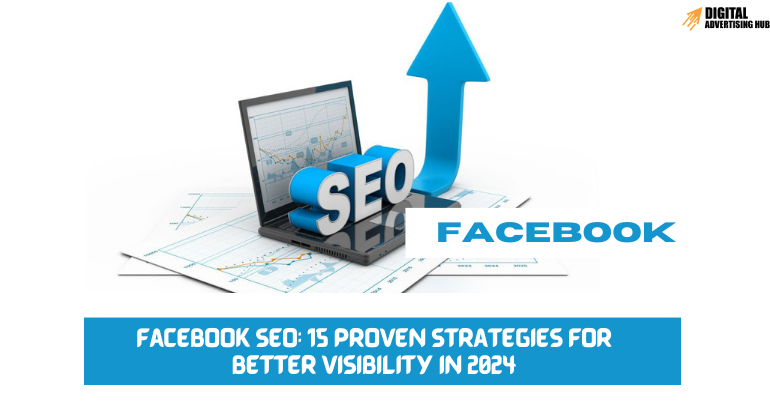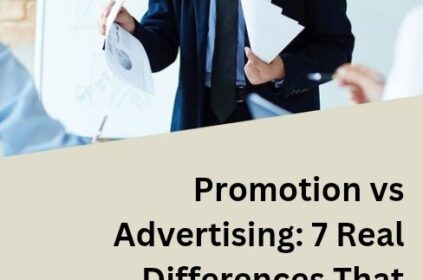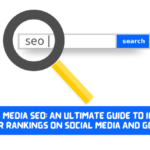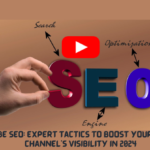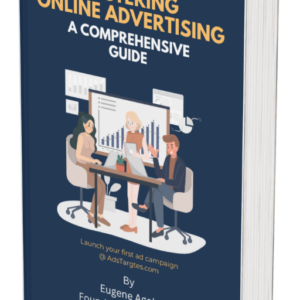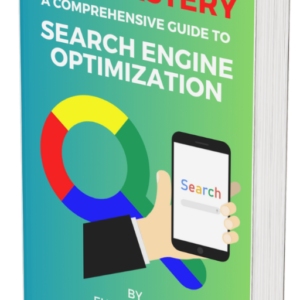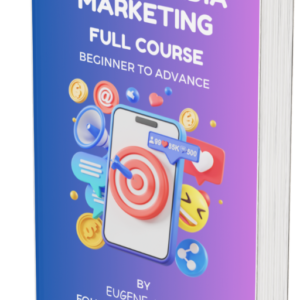You are welcome to “Facebook SEO: 15 Proven Strategies for Better Visibility in 2024”.
Did you know that as of Q3 2023, Facebook is the largest online social network in the world with roughly 3.05 billion monthly active users? Are you aware that The average American spends about 31 minutes per day on Facebook?
Social media plays a crucial role in driving website traffic and brand awareness. But simply having a Facebook page isn’t enough. To truly stand out and reach a wider audience, you need to leverage the power of Facebook SEO.
Building on our previous guide to social media SEO, this post explores the specific strategies you can implement to enhance your Facebook presence in 2024. Facebook’s algorithm and user preferences constantly evolve, so staying informed about the latest trends is key to maximizing your reach and engagement.
In this comprehensive blog post, we will explore 15 actionable tactics – from crafting engaging content to optimizing your profile – that will propel your Facebook SEO efforts to new heights and ensure your brand reaches the right audience on the world’s largest social media platform.
Why Does Facebook SEO Matter?
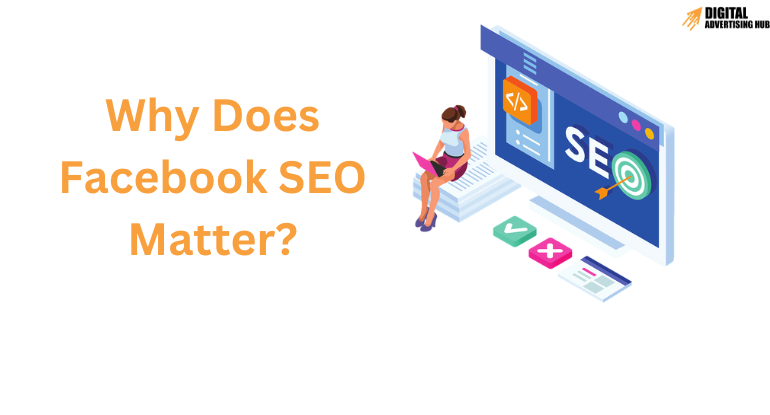
In the previous blog post, we explored the broader concept of social media SEO and its impact on website traffic and overall online presence. But why should you focus specifically on Facebook SEO? Here’s why:
#1. Massive User Base: Facebook boasts over 3 billion daily monthly users, making it an unparalleled platform for reaching a vast and targeted audience. Effective Facebook SEO ensures your content reaches the right people within this massive user base, increasing brand awareness and driving potential customers to your website.
#2. Improved Search Engine Ranking (Indirectly): While Facebook is not a traditional search engine, strong Facebook SEO practices can indirectly boost your website’s ranking on platforms like Google.
Here’s how: Social media profiles often appear in search engine results pages (SERPs) for branded searches. A well-optimized Facebook page with high engagement signals sends positive SEO signals to search engines, potentially improving your website’s overall ranking and visibility.
#3. Enhanced Brand Awareness and Credibility: Effective Facebook SEO goes beyond attracting followers. It is about crafting engaging content that positions you as an authority within your industry. By consistently sharing valuable and informative content, you establish yourself as a thought leader, fostering brand trust and credibility which can translate to website traffic and potential conversions.
#4. Targeted Audience Engagement: Facebook’s targeting options allow you to tailor your content to reach users with specific demographics and interests. This laser focus ensures your message resonates with the right audience, leading to higher engagement rates, increased brand loyalty, and ultimately, driving valuable website traffic.
#5. Community Building and Customer Relationships: Facebook fosters a sense of community. By actively engaging with your audience, responding to comments, and participating in discussions, you build strong customer relationships that extend beyond the platform and potentially translate to website visits and loyal brand advocates.
#6. Cost-Effective Marketing: Compared to traditional marketing channels, Facebook SEO represents a cost-effective way to reach a vast audience. By leveraging organic reach through strategic content creation and optimization, you can maximize your impact without a hefty advertising budget.
#7. Measurable Results: Facebook Insights provides valuable data on your content performance, audience demographics, and engagement metrics. This allows you to track your progress, identify what resonates with your audience, and continuously refine your Facebook SEO strategy for optimal results.
#8. Improved Website Traffic and Conversions: Ultimately, the goal of Facebook SEO is to drive qualified traffic to your website. By implementing the strategies outlined in this guide, you’ll attract a targeted audience interested in your brand or offerings, leading to increased website visits, potential conversions, and a strong return on investment (ROI).
Investing in Facebook SEO is an investment in your online presence. It allows you to leverage the power of social media to reach a wider audience, build brand awareness, and ultimately drive valuable website traffic for long-term success. Now, let’s delve deeper into how Facebook prioritizes content in 2024…
Understanding Facebook SEO in 2024
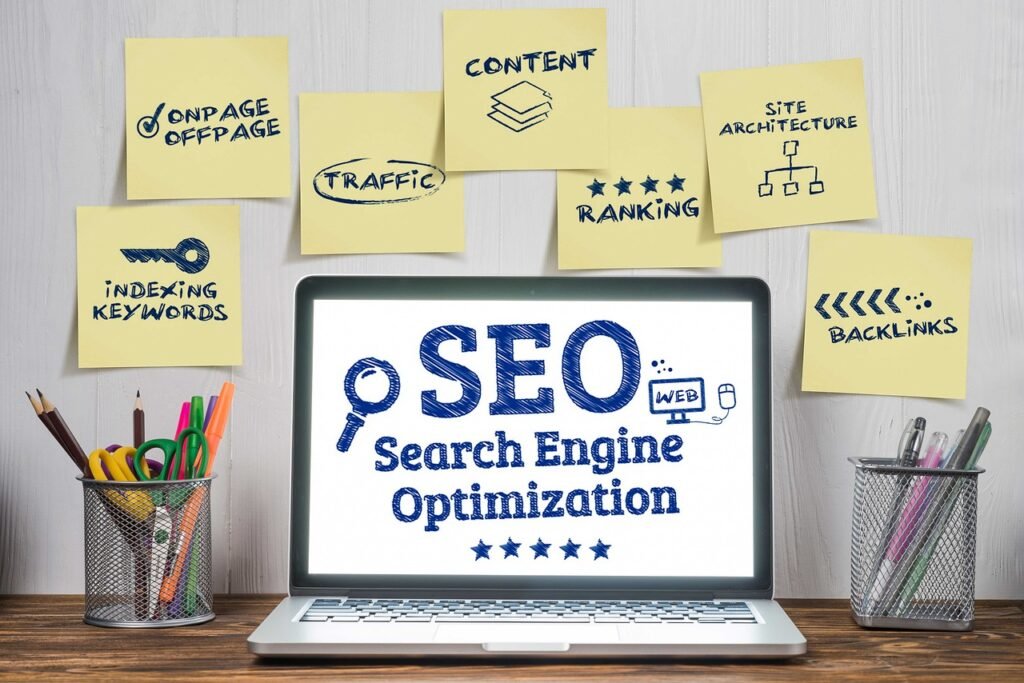
While Facebook doesn’t function exactly like a traditional search engine, it prioritizes content in user feeds based on a complex algorithm that considers various factors.
Understanding these factors is vital for crafting a successful Facebook SEO strategy. Here’s a breakdown of some key aspects to consider in 2024:
#1. Algorithm Focus: Facebook prioritizes content that sparks conversation and keeps users engaged on the platform. This means prioritizing high-quality visuals, thought-provoking captions, and content formats that encourage interaction, such as polls, questions, or live videos.
#2. Relevance and User Signals: Facebook aims to deliver content relevant to each user’s specific interests and past interactions. By incorporating relevant keywords throughout your profile and content, you increase the likelihood of your content appearing in news feeds for users interested in those topics.
However, engagement remains important. Content that generates likes, comments, and shares sends positive signals to the algorithm, boosting its reach in relevant user feeds.
#3. The Rise of Facebook Groups: Facebook Groups have become powerful communities for targeted engagement. By actively participating in relevant Groups and sharing high-quality content, you can expand your reach beyond your immediate follower base and establish yourself as a thought leader within your niche.
#4. Evolving Features: Facebook continuously introduces new features and updates its algorithm. Staying informed about these changes, such as the growing emphasis on Facebook Reels or Stories, allows you to adapt your content strategy to leverage the latest trends and maximize your reach.
15 Proven Strategies to Enhance Your Facebook SEO for Better Reach in 2024
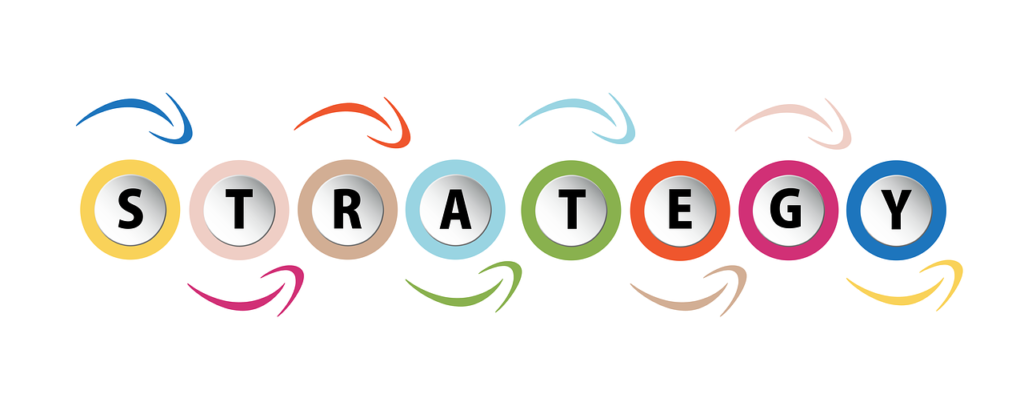
Now that we’ve explored the importance of Facebook SEO and the key factors influencing content visibility in 2024, let’s delve into actionable tactics you can implement to elevate your Facebook SEO strategy:
Content Strategy
#1. Embrace Engaging Content Formats:
Move beyond static text posts. Experiment with Facebook’s diverse content formats to cater to user preferences and boost engagement.
i). Go Live with Facebook Live: Host live Q&A sessions, product demonstrations, or behind-the-scenes glimpses to connect with your audience in real-time. Live content inherently boosts engagement due to its interactive nature. Promote your live sessions beforehand to generate excitement and encourage viewers to tune in.
ii). Craft Compelling Facebook Stories: Utilize Facebook Stories’ short-form video format to share snippets of your day, showcase products, or offer quick tutorials. Leverage interactive elements like polls or quizzes to spark audience participation and keep them engaged with your brand.
iii). Spark Discussion with Facebook Reels: Short-form video content reigns supreme on social media. Create engaging Reels that showcase your brand personality, tell a captivating story, or offer valuable tips related to your niche. Incorporate trending music or challenges to maximize reach and attract a wider audience.
#2. Prioritize Quality Visuals and Compelling Captions:
Visuals are the cornerstone of effective Facebook content. Invest in high-quality images or videos that capture attention and entice users to stop scrolling. Pair visuals with clear, concise, and engaging captions that spark curiosity, tell a story, or pose a question to encourage interaction.
i). Utilize High-Quality Images and Infographics: Visuals are processed faster than text. Invest in high-resolution images or eye-catching infographics that complement your content and grab attention while scrolling through feeds. Ensure visuals are relevant to your message and evoke an emotional response from your audience.
ii). Captions that Ask Questions: Instead of simply stating a fact, pose a thought-provoking question in your caption to spark conversation. For example, if you’re a bakery, you could post a picture of a delicious cake and ask, “Chocolate or Vanilla? What’s your favorite frosting flavor?”
iii). Captions that Tell a Story: People connect with stories. Use your captions to weave a narrative around your visuals, whether it’s highlighting the craftsmanship behind your product or showcasing a customer’s positive experience with your brand.
iv). Captions that Include a Call to Action (CTA): Tell your audience what you want them to do next. Whether it’s visiting your website, subscribing to your email list, or participating in a poll, a clear CTA increases engagement and drives desired actions.
#3. Leverage Facebook Groups:
Facebook Groups offer a goldmine for targeted engagement. Identify and join Groups relevant to your niche. Actively participate in discussions, share valuable insights, and contribute high-quality content that aligns with the Group’s focus. This expands your reach beyond your follower base and positions you as an authority within your industry.
i). Identify Relevant Groups: Search for Facebook Groups related to your industry or target audience. Look for Groups with a high number of active members and discussions that align with your brand’s offerings.
ii). Become a Valued Member: Don’t just promote yourself. Actively participate in discussions within the Group by providing helpful insights, answering questions, and offering valuable content related to the Group’s focus.
iii). Share High-Quality Content in Groups: When contributing content to Groups, ensure it’s relevant to the Group’s discussions and provides value to other members. Avoid blatant self-promotion, but don’t shy away from mentioning your brand or expertise if it directly addresses a topic at hand.
#4. Maintain a Consistent Posting Schedule:
Don’t leave your audience guessing. Develop a consistent posting schedule that aligns with peak audience activity times.
i). Analyze Your Audience: Utilize Facebook Insights to understand when your audience is most active on the platform. Schedule posts to go live during these peak times to ensure maximum visibility in user feeds.
ii). Utilize Scheduling Tools: Streamline your workflow by leveraging scheduling tools like Buffer or Hootsuite. These tools allow you to plan your content calendar in advance, schedule posts across various platforms, and ensure a consistent flow of content reaches your audience without needing to be online at specific times.
iii). Maintain Consistency: Aim for a consistent posting schedule, even if it’s just a few times a week. Regularly providing fresh content keeps your audience engaged and reminds Facebook’s algorithm that your page is active.
By implementing these practical tips, you can craft a dynamic Facebook content strategy that captures attention, ignites conversations, and positions you as a leader within your niche. In the next section, we’ll explore how to leverage keywords for optimal Facebook SEO.
Keyword Optimization: The Secret Weapon of Facebook SEO
While Facebook doesn’t rely solely on keywords like traditional search engines, strategically incorporating relevant keywords throughout your profile and content significantly enhances your Facebook SEO. Here’s how to leverage keywords for maximum impact:
#5. Integrate Relevant Keywords Throughout Your Page:
i). Keyword Research: Before diving in, conduct thorough keyword research to identify relevant terms your target audience uses to search for brands or products like yours. Utilize free tools like Google Keyword Planner or social listening platforms like Brandwatch to discover high-volume, low-competition keywords that resonate with your niche. Learn about the 24 Powerful Advanced Keyword Research Techniques for SEO Success.
ii). Optimize Your Page Bio and About Section: Don’t underestimate the power of your Facebook page bio and About section. Incorporate relevant keywords naturally within the text while maintaining a clear and concise brand description.
For instance, if you’re a bakery specializing in vegan pastries, your bio could include keywords like “vegan bakery,” “plant-based desserts,” or “guilt-free treats.”
iii). Sprinkle Keywords Throughout Your Posts: Don’t force keywords – prioritize readability. However, strategically integrate relevant keywords throughout your post captions, ensuring they flow naturally within the context of your content.
For example, if you’re sharing a recipe for vegan cookies, you could mention keywords like “vegan cookies recipe,” “easy vegan baking,” or “healthy dessert ideas.”
#6. Leverage Facebook’s Keyword Research Tools:
i). Facebook Audience Insights: Facebook Audience Insights is a treasure trove of data about your audience demographics and interests. Utilize the “Search Interests” section to discover keywords your target audience actively searches for on Facebook. This allows you to tailor your content and keyword strategy to resonate directly with their interests.
In addition, study the Best Keyword Research Strategy, Tools and Examples Guide.
ii). Facebook Recommendations: When creating a post or editing your profile, Facebook often suggests relevant keywords or hashtags based on the content you’re entering. Take advantage of these suggestions to identify additional keywords you might have overlooked during your initial research phase.
iii). Trending Topics: Stay on top of current trends and conversations within your industry. Facebook provides insights into trending topics that you can leverage to create content incorporating those trending keywords. This increases the visibility of your posts as users actively search for information related to those trends.
#7. Don’t Neglect Long-Tail Keywords:
i). Focus on Specificity: While high-volume keywords might seem appealing, they can also be highly competitive. Consider incorporating long-tail keywords – more specific phrases with lower search volume but higher conversion rates. For instance, instead of just targeting the keyword “bakery,” you could target the long-tail keyword “gluten-free bakery near me.” This increases the likelihood of attracting users with a specific purchase intent.
ii). Target Niche Interests: Long-tail keywords allow you to target the specific interests of your niche audience. For example, if you’re a bakery specializing in wedding cakes, you could target keywords like “custom vegan wedding cake designs” or “affordable dairy-free wedding cake options.” This ensures your content reaches users actively searching for solutions that directly align with your offerings.
iii). Combine Broad and Long-Tail Keywords: Create a balanced keyword strategy. Target a few high-volume keywords for broader reach, but prioritize incorporating a mix of relevant long-tail keywords to attract a more targeted audience with a higher conversion potential.
By following these steps and strategically integrating keywords throughout your Facebook presence, you’ll enhance your content’s discoverability and ensure your target audience finds you when searching for solutions related to your brand or niche.
In the next section, we’ll explore the power of engagement and interaction for successful Facebook SEO.
The Power of Engagement: Fueling Your Facebook SEO with Interaction
On Facebook, content doesn’t exist in a vacuum. Engagement is the lifeblood of any successful Facebook SEO strategy. Here’s how to leverage interaction to boost your reach and visibility:
#8. Actively Respond to Comments and Messages:
i). Prompt Conversation: Don’t just passively observe comments. Actively respond to comments and messages in a timely manner. This demonstrates that you value your audience’s opinions and fosters a sense of community around your brand.
ii). Ask Follow-Up Questions: Take conversations beyond simple acknowledgements. Ask follow-up questions to encourage further discussion and keep users engaged with your content.
iii). Respond with Personality: Let your brand voice shine through in your responses. Inject humor, express empathy, or share personal anecdotes to build genuine connections with your audience.
#9. Encourage Audience Participation with Interactive Content:
i). Polls and Quizzes: Spark audience participation with interactive content formats like polls or quizzes. These elements not only capture attention but also provide valuable insights into your audience’s preferences and interests.
ii). Live Q&A Sessions: Host live Q&A sessions to directly address audience questions and concerns. This fosters a sense of transparency and allows you to showcase your expertise in real-time.
iii). Contests and Giveaways: Who doesn’t love a good giveaway? Organize contests or giveaways to generate excitement around your brand and incentivize audience participation. Ensure contest rules are clear and relevant to your target audience.
#10. Partner with Influencers or Collaborate with Relevant Pages:
i). Identify Industry Influencers: Partner with social media influencers within your niche. Collaborate on content creation, host joint live sessions, or participate in cross-promotional activities. Leverage the influencer’s established audience to expand your reach and attract new followers.
ii). Engage with Relevant Pages: Identify and engage with other Facebook pages that cater to a similar audience or complement your brand offerings. Leave insightful comments on their posts, participate in discussions, or explore co-creation opportunities to reach a wider audience through combined efforts.
#11. Host Live Events or Facebook Live Sessions:
i). Variety is Key: Go beyond static content. Host live events or Facebook Live sessions to showcase your brand personality, connect with your audience in real-time, and answer questions directly.
ii). Promote Live Events: Don’t leave your live sessions to chance. Promote them beforehand through engaging posts and captivating visuals to generate excitement and encourage viewers to tune in.
iii). Post Event Recordings: Repurpose your live content. After your live session, edit the recording and post it on your Facebook page for users who missed the live event but might still be interested in the content.
By actively engaging with your audience, fostering conversation, and collaborating with relevant figures within your niche, you’ll breathe life into your Facebook SEO strategy.
The more your audience interacts with your content, the more Facebook’s algorithm recognizes its value and increases its visibility in user feeds. In the next section, we’ll explore technical optimization techniques to further enhance your Facebook SEO efforts.
Technical Optimization: Fine-Tuning Your Facebook Presence for SEO
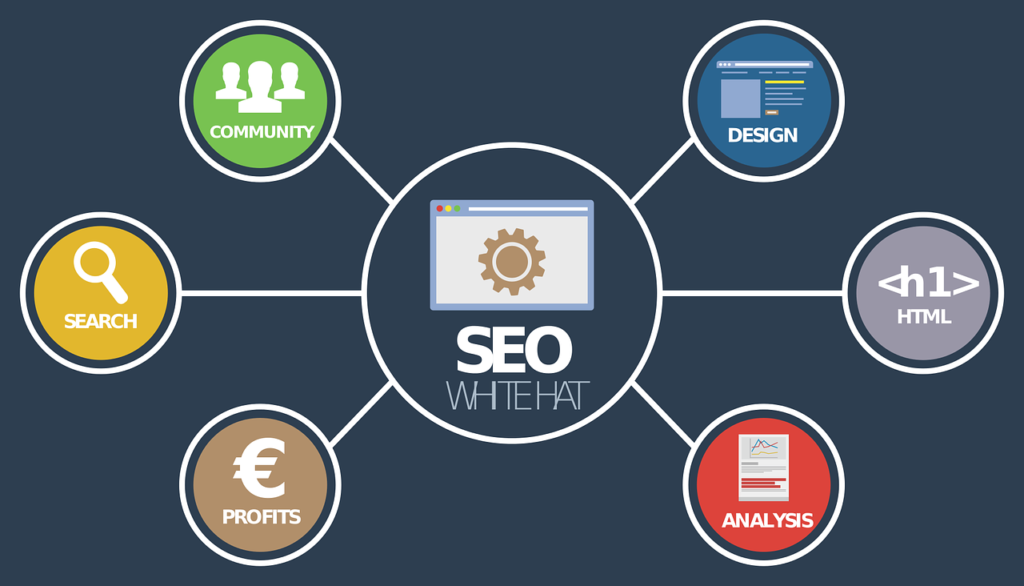
While content and engagement reign supreme, technical SEO plays a crucial role in optimizing your Facebook presence for better discoverability. Here are two key elements to consider:
#12. Optimize Your Facebook Page URL:
i). Descriptive and Branded: Your Facebook page URL acts as your online identifier. Customize it to a clear and descriptive format that incorporates your brand name or relevant keywords. For instance, if your bakery is called “Sweet Surrender,” your ideal URL might be “[invalid URL removed].”
ii). Claim Your Vanity URL: Facebook offers the option to claim a vanity URL. This allows you to replace the generic string of numbers with a more user-friendly and memorable custom URL. Claim your vanity URL early to ensure brand consistency across online platforms.
iii). Easy to Remember: Strive for a URL that’s concise, easy to spell, and reflects your brand identity. Avoid using excessive numbers, special characters, or unnecessary punctuation.
#13. Ensure High-Quality Visuals with Alt Text Descriptions
i). Visual Appeal Matters: High-quality visuals are essential for capturing attention on Facebook. Invest in clear, professional-looking images or engaging videos that complement your content and resonate with your audience.
ii). Accessibility and SEO Benefits: Don’t neglect alt text descriptions for your visuals. These brief descriptions not only improve accessibility for visually impaired users but also provide valuable information for search engines to understand the context of your visual content.
iii). Optimize Alt Text: Craft clear and concise alt text descriptions that incorporate relevant keywords. For instance, the alt text for an image of a chocolate cake could be “Delicious chocolate cake with rich frosting, perfect for any celebration.”
By implementing these technical SEO practices, you’ll ensure your Facebook page is easily discoverable and fosters a positive user experience, which can indirectly improve your ranking on search engines like Google. In the final section, we’ll explore the importance of data analysis for continuous improvement in your Facebook SEO journey.
Analytics and Tracking
Unearthing valuable insights from your Facebook presence is the secret sauce for ongoing optimization and SEO success. Here’s a detailed breakdown of two key tactics to leverage:
#14. Harness the Power of Facebook Insights:
Imagine Facebook Insights as a mission control center for your Facebook page. This built-in analytics tool provides a wealth of data to understand how your audience interacts with your content and how effectively your efforts translate into website traffic and engagement. Here are some key metrics to track within Facebook Insights:
i). Reach: This metric reveals the total number of unique users who saw your post. It’s a good indicator of how well your content is getting distributed across the platform.
ii). Engagement: This category dives deeper and measures how users interact with your content. It includes metrics like likes, comments, shares, and reactions. Higher engagement indicates that your content is resonating with your audience and sparking conversation.
iii). Website Clicks: Track how many users clicked on links within your Facebook posts. This metric helps you understand how effectively your Facebook presence drives traffic to your website, which is crucial for conversions and overall marketing goals.
Understanding what these metrics tell you:
By analyzing these metrics in conjunction, you can gain a holistic understanding of your Facebook SEO performance. Here are some examples:
i). High Reach but Low Engagement: This might indicate your content is reaching a broad audience but failing to capture their interest. Analyze the content itself – is it visually appealing? Does the caption effectively grab attention? Consider revising the content or posting style to increase engagement.
ii). Strong Engagement but Low Reach: This suggests your content resonates with those who see it, but it’s not reaching a large enough audience. You might need to refine your targeting strategy or explore paid promotion options to broaden your reach.
iii). High Website Clicks: This is a positive sign! It indicates your content is not only engaging but also effectively driving traffic to your website. Analyze the content that generates the most clicks and see if you can identify common themes or elements to replicate in future posts.
#15. Content Performance Analysis: Go Beyond the Basics
While Facebook Insights offers valuable data points, don’t settle for surface-level analysis. Take a deeper dive to understand what content truly resonates with your audience and refine your strategy for continuous improvement. Here’s how:
i). Look beyond vanity metrics: While likes and shares are encouraging, delve into metrics that indicate deeper audience connection. Look for comments, especially those that spark discussions or ask questions. Analyze which posts generate the most website clicks and investigate why – is it the topic, visuals, or call to action (CTA)?
ii). Identify content patterns: Once you’ve analyzed top-performing posts, look for patterns. Is it a specific content format (video, image, text)? Does the content address a particular audience pain point or interest? Identifying these patterns allows you to tailor future content to replicate successful elements and achieve even stronger results.
iii). A/B testing: Consider A/B testing different elements of your content, such as headlines, visuals, or CTAs. This allows you to see which variations resonate best with your audience and optimize your approach over time.
By implementing these tactics and leveraging data analysis, you can transform data into actionable insights that fuel your Facebook SEO strategy. Remember, data is a powerful tool – use it to learn, improve, and optimize your Facebook presence for long-term success.
Don’t be afraid to experiment, analyze results, and adapt your approach to continuously improve your Facebook SEO efforts.
10 Common Facebook SEO Mistakes and How to Avoid Them
While Facebook SEO offers a powerful tool to amplify your online presence, there are pitfalls that can hinder your efforts. Here’s a closer look at 10 common mistakes and how to steer clear of them:
#1. Neglecting Keyword Research: Imagine searching for a bakery and only finding results for cake shops. Keyword research is crucial to ensure your Facebook page shows up when your target audience searches for relevant terms.
Utilize keyword research tools to identify the specific keywords and phrases your ideal customer uses. Once you understand these keywords, incorporate them naturally into your page content, captions, and descriptions.
#2. Inconsistent Posting: Facebook prioritizes fresh content and user engagement in its algorithm. If you post sporadically, your audience might miss your updates, and your page visibility may suffer. Develop a consistent posting schedule that aligns with your audience’s peak activity times. This ensures your content stays fresh and increases the chances of your audience seeing your posts.
#3. Ignoring Paid Promotion: Organic reach on Facebook can be challenging, especially for new pages. While organic SEO is important, consider incorporating strategic paid promotion to boost your content and reach a wider audience.
Utilize Facebook Ads to target specific demographics and interests with laser focus, maximizing the impact of your campaigns. Study our Facebook Ads Guide: 13 Easy and Essential Tips to Increase Your Sales and ROI in 2024.
#4. Focusing on Quantity over Quality: Don’t fall into the trap of churning out low-quality content just to maintain a posting schedule. Focus on creating valuable, informative, and engaging content that resonates with your target audience. Provide helpful tips, industry insights, or entertaining stories that your audience will find genuinely interesting and useful.
#5. Forgetting the Call to Action (CTA): Every Facebook post should have a clear CTA, a specific action you want your audience to take. This could be anything from visiting your website to signing up for an email list or registering for an event. A strong CTA compels your audience to engage with your content and drives results.
#6. Underestimating the Power of Visuals: People are drawn to visually appealing content. High-quality visuals like clear, professional-looking images and engaging videos grab attention on Facebook, stop users scrolling, and entice them to read your content. Use visuals that complement your message and resonate with your target audience.
#7. Neglecting Community Engagement: Facebook thrives on interaction. Don’t just post content and walk away. Respond to comments and messages promptly.
Encourage conversation by asking questions, and actively participate in discussions. Building relationships with your audience fosters a strong community around your page and boosts engagement, a positive SEO signal.
#8. Spamming Your Audience: Nobody enjoys being bombarded with promotional messages. Avoid excessive self-promotion or overly sales-oriented content. Instead, focus on providing valuable content that informs, educates, and entertains your audience.
Offer helpful tips, industry insights, or behind-the-scenes glimpses into your business. This builds trust and establishes you as a thought leader in your niche.
#9. Ignoring Analytics: Data is your friend! Facebook Insights offers a treasure trove of information about how your audience interacts with your content. Track key metrics like reach, engagement, and website clicks to understand what resonates with your audience and what falls flat. Use this data to refine your strategy, identify successful content formats and topics, and tailor your future content for even better results.
#10. Failing to Adapt: The social media landscape is constantly evolving, and Facebook SEO is no exception. Stay updated on the latest trends and algorithm changes. Explore new content formats like Facebook Live or Stories. Adapt your strategy based on your data and industry best practices to ensure your Facebook presence remains optimized for long-term SEO success.
By avoiding these common mistakes and implementing the strategies outlined above, you can ensure your Facebook presence is optimized to attract your target audience, build a strong community, and achieve long-term SEO success. Remember, Facebook SEO is an ongoing process. Experiment, track your results, and be prepared to adapt your approach as you learn and grow.
Facebook SEO FAQs: Answers to Enhance Credibility
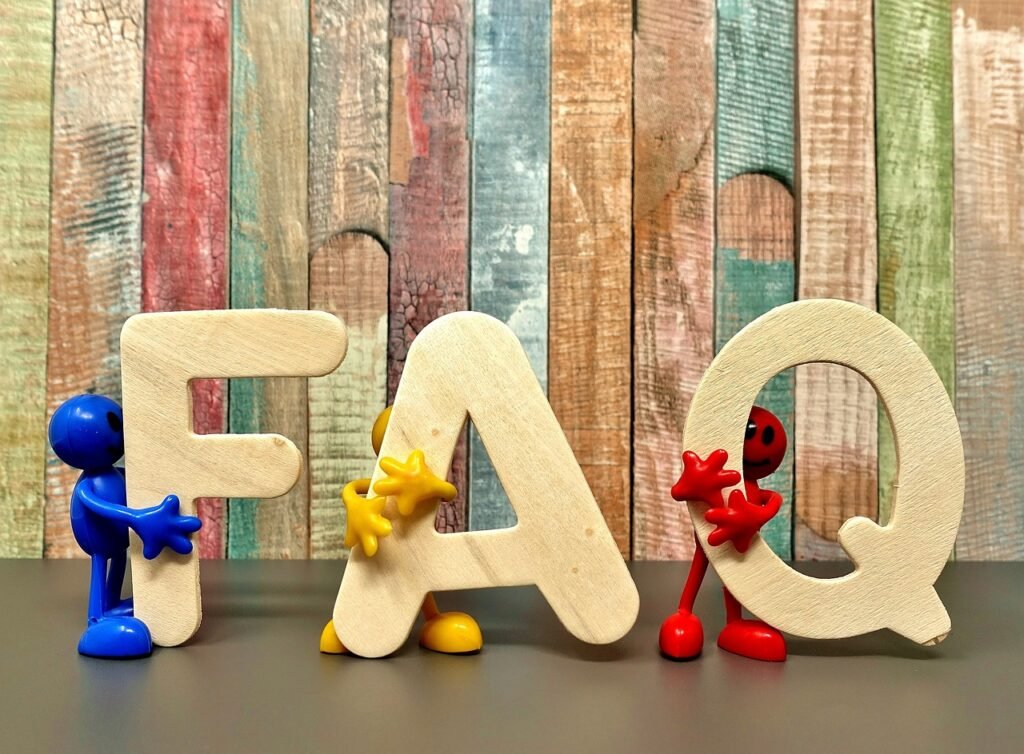
Here’s a breakdown of common Facebook SEO FAQs to empower you with informative and trustworthy answers:
#1. Can you do SEO on Facebook?
Yes, you can definitely optimize your Facebook presence for search! While Facebook search functions differently from Google search, SEO principles still apply. By optimizing your page elements and content, you can improve your discoverability within Facebook search results.
#2. What does SEO mean on Facebook?
On Facebook, SEO refers to optimizing your page profile, content, and overall presence to rank higher in Facebook’s internal search algorithm. This increases the likelihood of your page appearing when users search for keywords related to your business or niche.
#3. How to get 100% SEO?
Unfortunately, there’s no guaranteed “100% SEO” on any platform, including Facebook. However, by implementing best practices and consistently refining your strategy, you can significantly improve your Facebook SEO performance.
Here are some key strategies to consider:
1. Optimize your page profile: Include relevant keywords in your page name, username (vanity URL), and “About” section.
2. Craft high-quality content: Create engaging content that resonates with your target audience and incorporates relevant keywords naturally.
3. Post consistently: Maintain a consistent posting schedule to keep your audience engaged and ensure your content stays fresh in Facebook’s algorithm.
4. Utilize visuals: Use high-quality images and videos to grab attention and complement your content.
5. Encourage engagement: Respond to comments and messages promptly, and foster a sense of community around your page.
6. Track your results: Utilize Facebook Insights to understand how your audience interacts with your content and adapt your strategy accordingly.
#4. What are 5 ways to optimize your Facebook page?
Here are 5 effective ways to optimize your Facebook page:
- Keyword Research: Identify relevant keywords your target audience uses to search for businesses like yours.
- Compelling Content: Create valuable, informative, and engaging content that resonates with your audience.
- Visual Appeal: Use high-quality images and videos to grab attention and stop users scrolling.
- Community Building: Respond to comments, messages, and encourage conversation with your audience.
- Data-Driven Approach: Track key metrics with Facebook Insights and adapt your strategy based on data.
#5. How to get a Facebook page to show on Google search?
While directly influencing Google search ranking isn’t the primary goal of Facebook SEO, an optimized Facebook page can indirectly improve your overall web presence and potentially influence Google search results. Here’s why:
1. Strong Facebook presence: A well-optimized and engaging Facebook page establishes your brand’s credibility and online presence. This can positively impact Google’s perception of your brand.
2. Website traffic: Increased traffic to your website from Facebook can be a positive signal for Google’s search algorithms.
3. Backlinks: If other websites link to your Facebook page, it can contribute to your overall SEO profile.
#6. How Do I promote my Facebook page on Google?
There’s no direct way to promote your Facebook page on Google search. However, you can implement strategies that enhance your overall online presence and potentially influence Google search results:
1. Claim your Google My Business listing: This free tool helps your business appear in Google Maps and local search results.
2. Link your Facebook page to your website: Ensure your website includes a link to your Facebook page.
3. Consistent branding: Maintain consistent branding (name, logo, descriptions) across your website and Facebook page.
4. High-quality website content: Create valuable content on your website that complements your Facebook content.
By implementing these strategies, you can create a cohesive online presence that strengthens your brand’s overall search engine visibility.
Conclusion
Optimizing your Facebook presence for SEO is an ongoing process, but the rewards are significant. By implementing the strategies outlined above, you can increase your page’s visibility, attract a wider audience, and drive valuable traffic to your website. Remember, the key takeaways are:
Technical SEO matters: A well-optimized Facebook page URL and informative alt text descriptions for visuals lay the foundation for strong SEO performance.
Content is paramount: Create high-quality, engaging content that resonates with your target audience. Leverage data to understand what works best and refine your strategy for continuous improvement.
Data is your friend: Utilize Facebook Insights and track key metrics to gain valuable insights into your audience’s behavior and content performance.
Embrace experimentation: Don’t be afraid to experiment with different content formats, posting times, and targeting strategies. Track the results and adapt your approach to maximize reach and engagement.
The journey to Facebook SEO success is paved with ongoing optimization. We encourage you to put these tips into action, experiment, track your results, and adapt your strategy as you learn. What Facebook SEO tactics have worked best for you? Share your experiences or ask questions in the comments below – we’d love to hear from you!

